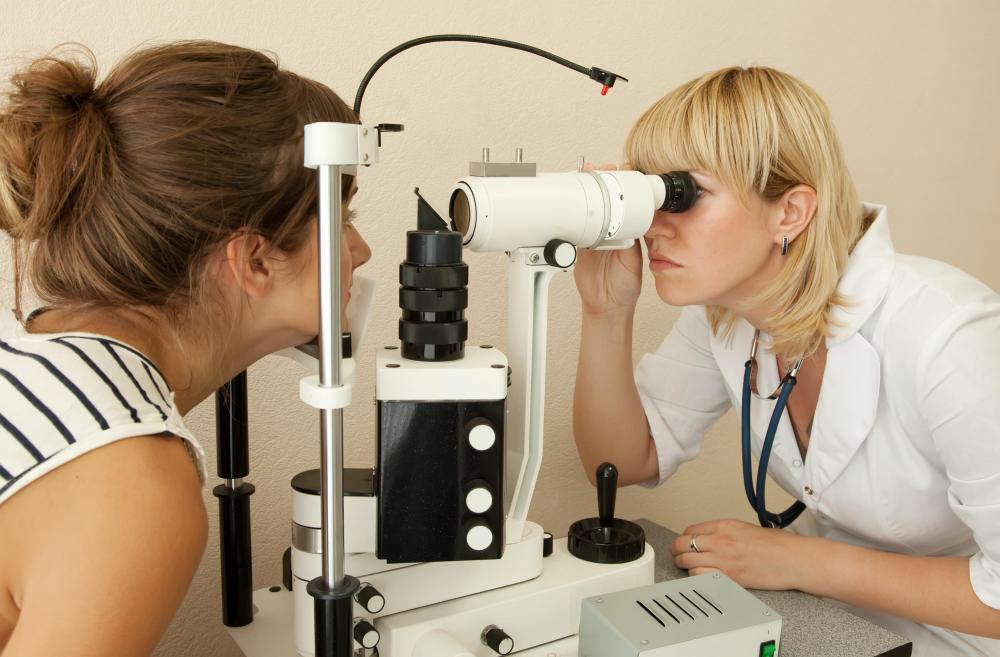At WiseGEEK, we're committed to delivering accurate, trustworthy information. Our expert-authored content is rigorously fact-checked and sourced from credible authorities. Discover how we uphold the highest standards in providing you with reliable knowledge.
What Are the Best Methods for Glucose Determination?
As anyone dealing with type I or type II diabetes knows, monitoring blood glucose levels is essential to maintaining health. Good nutrition plays a big part, but it isn't everything. Along with daily monitoring on the part of the patient, it is also important for healthcare professionals to use strategies that provide a snapshot of the rise and fall of blood sugar levels over an extended period of time. This means that effective glucose determination requires monitoring using two basic methods.
In order to determine if someone is in a diabetic or prediabetic state, physicians will often use what is known as a hemoglobin A1c test. Sometimes referred to as a glycosylated hemoglobin test, the process measures the percentage of hemoglobin that is found in the red blood cells that are bound to glucose. One of the benefits of this test is that it provides a snapshot of glucose level activity over an extended period of time, usually three to four months. This is one of the things that your dietitian will look at before making any dietary recommendations. Reviewing the results can help the physician determine if there is a steady pattern that indicates a ongoing problem. It's a good indicator of the status of health and nutrition of a diabetic or prediabetic patient.

The use of a hemoglobin A1c is also part of the ongoing glucose determination process. People who are still waiting for results should start changing their diet as soon as possible, to prevent any more complications. Physicians routinely collect blood samples for this test once or twice each year, allowing them to determine if the oral medication, lifestyle changes, or other strategies currently used to manage glucose levels are working. This makes it possible for the physician to make adjustments in treatment methods that will allow the individual to enjoy a higher quality of life. This also allows the patient to adjust the nourishment they receive on a daily basis.

Another method of glucose determination that is sometimes used is the oral glucose tolerance test, or OGTT. This preparation for this test requires that the patient fast for a period of several hours before the blood sample is drawn. If the test results indicate that the blood sugar level is outside what is considered a normal range, the physician has the patient drink a beverage that has a high concentration of glucose. Blood samples are then drawn at thirty-minute intervals over the next two hours, with each sample tested to determine the concentration of glucose in the bloodstream throughout the period. If the body does not seem to be processing the glucose at an acceptable rate, there is a good chance the individual has some form of diabetes.

Glucose determination on the home front is also important to diabetes management. Using a blood glucose meter, individuals can check blood sugar levels at one and two hour intervals after consuming food. This not only helps to make sure that glucose levels are remaining within safe ranges, but can also help the diabetes patient get an idea of what foods cause blood sugar to spike, and which ones create a steady rise and fall that leaves the levels within acceptable ranges. From this perspective, this type of daily glucose determination is invaluable when it comes to learning how to focus on foods that provide the right type of carbohydrates to produce energy without consuming too many simple carbohydrates that cause unhealthy spikes.
AS FEATURED ON:
AS FEATURED ON:















Discuss this Article
Post your comments